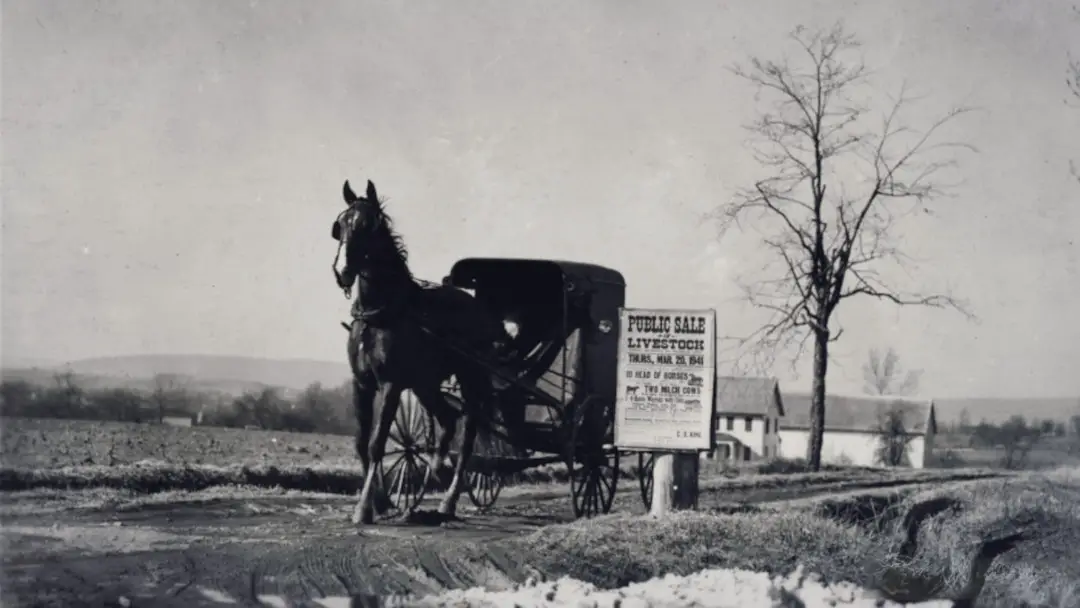Even though I live only a few hours from Amish Country in Lancaster, PA and regularly purchase baked goods from an Amish family that comes weekly to a farm I frequent, I never gave much thought to their successful business track record.
I first became aware of their enviable success record via the Time magazine article Management, Plain and Simple. The article poses the question: is it their lifestyle or the way they work that is responsible for their success? They are not just a little more successful than the average U.S. small business, they are exponentially more successful:
A new study in the Global Business and Economics Review says the failure rate of Amish businesses is less than 10% in the first five years, compared with 50% of small businesses in the U.S. over the same time period.
It is downright astonishing when you consider the obstacles Amish businesses face:
- Typically no higher education than eighth grade
- Restrictions on technology (computers, phones, credit cards, pagers, etc)
- Little or no advertising, i.e. radio, TV, internet and social media
- No accounting, human resources, information management, or marketing training
In the age of social media and technology at every turn, why is it that people who travel by horse and buggy, don't have phones in their home and shun electricity succeed in business at a rate that leaves the rest of us in the dust? So much for the truism that if you aren't online, your business doesn't exist.

This question intrigued Erik Wesner enough that he lived and worked among the Amish for three years and wrote the book Success Made Simple: An Inside Look at Why Amish Businesses Thrive. Wesner’s book begins with a surprising backdrop for the story.
A surprising thing happened across America in recent years: many Amish farmers abandoned their plows to become entrepreneurs. And they succeeded. This quiet, mini Industrial Revolution in Amish-land trailed the rise of factories in the larger society by more than a century.
Barefoot Amish entrepreneurs walked right out of cow stables to assume the ownership of microenterprises in dozens of communities. With no family lineage in business or cultural tradition in manufacturing, they founded hundreds of start-from-scratch operations. Today, some nine thousand Amish-owned and operated enterprises thrive in North America.
Most of these Amish enterprises are not modest mom-and-pop operations selling homemade root beer, rugs, butter, cheese, and brooms on back-road stands. Although many are small, and lean heavily on family labor, some have a dozen or more employees and annual sales above $5 million. Some shops manufacture products that are marketed across the nation, and occasionally even around the world. A few enterprises have contracts with businesses as diverse as Kmart and Ralph Lauren.
The book aims to distill the essential lessons these “plain people” have to teach about Amish business success. Here is a partial list of principles in the book that underpin successful Amish businesses:
- Fear and faith. Although Amish business owners feel the same responsibilities and fears as other business owners, their faith keeps them grounded.
- Amish business owners cultivate a well-formulated, deeply held vision, believing as one Pennsylvania Amish Entrepreneur, “If you don’t have a dream, what do you got?” The business exists for a larger purpose, not just to make money.
- Put relationships first and profits will follow. Amish employees usually are members of the entrepreneur’s family and community. Therefore, they are respectful and honest with each other. Successful Amish businesses live and die by the strengths of their relationships with employees, suppliers, distributors, and customers.
- A conservative, slower, deliberate, and mindful approach to decision-making, growth, and spending helps keep the business to a manageable scale.
- Everyone knows the Amish story. It’s about old fashioned quality and tradition.
Marketing won’t solve the fundamental problem of a subpar product because all three means of communicating: telephone, television, and “tell-a-Amish” are lightening fast. - Produce and protect quality, especially when expanding. Expanding too fast can threaten quality and drive away customers.
- Unhappy customers talk faster and louder than happy ones. Resolve customer issues quickly. Better yet, avoid them by following customer first principles.
- Education does not produce character. When given a choice, select employees with less education and fewer skills but a desire to do well.
- Getting your hands dirty earns employee’s respect. Humility opens ears and minds. Fear and intimidation may motivate employees for a while but respect gets longer term results.
- Organization and systematic analysis can yield efficiencies and savings. Make sure that all tasks performed contribute to the effectiveness of the business.
While many business owners may espouse some of these principles, they may not implement them with fervor and discipline of the Amish. They may even feel some of them are a bit naïve. But, when you compare the remarkable success of Amish start-ups to other new businesses, it is clear that they work.
CNN Money's Why Amish Businesses Don't Fail drew this lesson from the book: "Networking through Facebook doesn't exactly have the same community-building pull as teaming up with neighbors to build a barn, and few Americans these days can point to a childhood where they awoke regularly at dawn to milk the cows."
True connection and serious discipline. These people stick to what they know, and they deliver consistent, quality products and services. I know I have never purchased baked goods from the Amish that weren't made with real ingredients (no high fructose corn syrup there). Everything I have ever purchased simply tasted heavenly.
The Amish build their businesses on a strong foundation of their personal values. They know what is most important to them and don't compromise it. They have also mastered the art of single-tasking, which means they are focused and present while working in their business and living their lives. I have to believe this is part of their secret to being at peace with their work and their lives as well.
Within their many business success secrets lie their willingness to be uncomfortable, feel the fear and yet move forward in faith. So many of the rest of us don't seem to want to get even a little uncomfortable, yet alone do what it takes. This may also explain why their businesses are fairly recession-proof, and they aren't casualties with highly leveraged financial lives.
One thing that rings out strong and clear, no matter what venue I go to and encounter an Amish business, is that they are fundamentally pleasant and seem to be at peace with who they are and their choices. They don't try to be who they are not, and they don't apologize for being who they are.
While we're not likely to see an Amish CEO of a top company anytime soon (plus why would they want to?), there are a tremendous amount of lessons to be learned from the way they choose to live and work and their tremendous track record of small business success.



